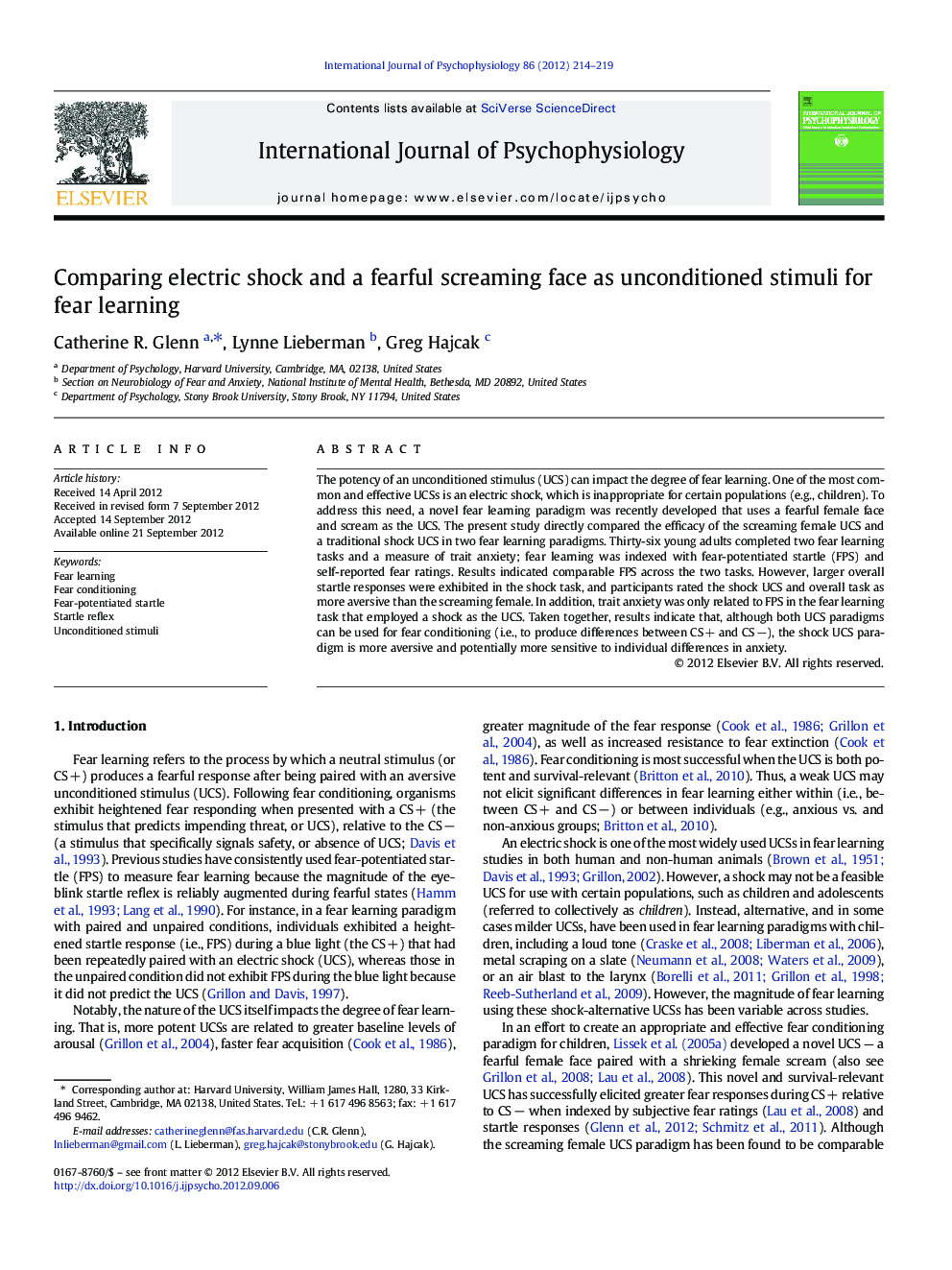| کد مقاله | کد نشریه | سال انتشار | مقاله انگلیسی | نسخه تمام متن |
|---|---|---|---|---|
| 930122 | 1474436 | 2012 | 6 صفحه PDF | دانلود رایگان |

The potency of an unconditioned stimulus (UCS) can impact the degree of fear learning. One of the most common and effective UCSs is an electric shock, which is inappropriate for certain populations (e.g., children). To address this need, a novel fear learning paradigm was recently developed that uses a fearful female face and scream as the UCS. The present study directly compared the efficacy of the screaming female UCS and a traditional shock UCS in two fear learning paradigms. Thirty-six young adults completed two fear learning tasks and a measure of trait anxiety; fear learning was indexed with fear-potentiated startle (FPS) and self-reported fear ratings. Results indicated comparable FPS across the two tasks. However, larger overall startle responses were exhibited in the shock task, and participants rated the shock UCS and overall task as more aversive than the screaming female. In addition, trait anxiety was only related to FPS in the fear learning task that employed a shock as the UCS. Taken together, results indicate that, although both UCS paradigms can be used for fear conditioning (i.e., to produce differences between CS + and CS −), the shock UCS paradigm is more aversive and potentially more sensitive to individual differences in anxiety.
► Compared the efficacy of a screaming female UCS and a shock UCS for fear learning
► Fear-potentiated startle was comparable across the two UCS tasks.
► However, the shock task was rated as more aversive than the screaming female UCS.
► In addition, only the shock task was related to individual differences in anxiety.
Journal: International Journal of Psychophysiology - Volume 86, Issue 3, December 2012, Pages 214–219